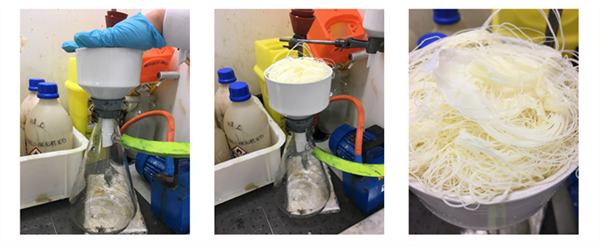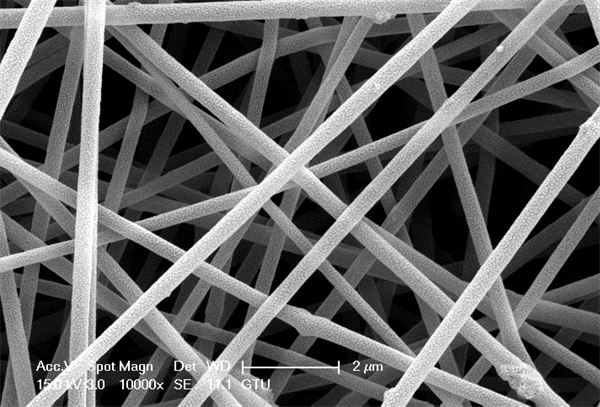Project Title: Developing Antibacterial Nanofiber Air Filters for Bioaerosol Removal from Ambient Air
Project Type: TÜBİTAK Project
Project Coordinator: Doç. Dr. Derya Yüksel İmer
In this project, the antibacterial and bioaerosol removal filters were developed with hightechnology production processes using the collaboration of industry and multiple Universities in Turkey and England. Raw materials (nanomaterials and functional biocidal monomers) of filters having high performance properties were fabricated with academic collaborations between ITU, PRU and Northumbria University. These were tested for their usability for indoor air filter applications and their performances were approved through the fabrication of air filters having high efficient, high bioaerosol retaining capacity, antibacterial, compact and optimum filtration area under a range of test conditions. The collaboration between three universities (ITU, PRU and NU) and private company (Inovenso) enables us to significantly enhance the impact of academic research conducted in our universities. The mobility of scientific knowledge from university to industrial areas increases the competition and globalization in engineering communities. This strategy is very important for making a real and sustained contribution to technology development in developing countries. The expected outcomes of a mutual relationship between industrial experience and academic perspective are; (i) the enlargement in theory and practice for air-filter development (ii) the management of activities, such as employment of post doctoral or doctoral students in the nanofiber fabrication industry (iii) generation of new and practical knowledge about air filtration technology (iv) creating a public awareness for importance of indoor air quality. In addition to these outcomes, the academic partnership in the proposed project will increase researcher productivity resulting in high impact publications and patents. The academic partnership includes the capacity building activities, sharing of scientific equipment and services, casestudy applications and knowledge exchange relationships. The expected impacts of collaboration are; (i) increase of scientific productivity (ii) building the relationship with academicians and industry regarding indoor air quality (iii) enhancing the collaborative relationships between researchers to encourage future collaboration projects.

